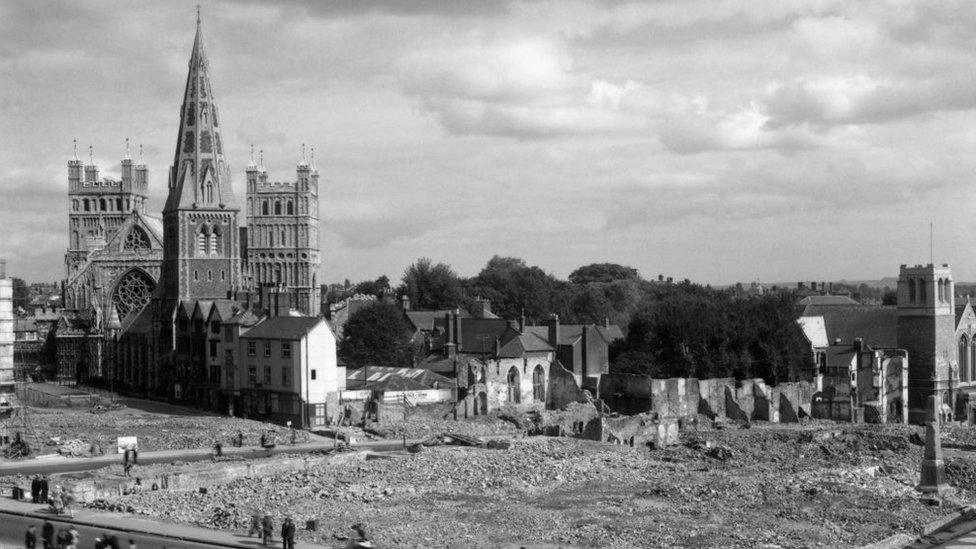North Sea: Fishermen lucky to survive after line set off WW2 bomb
- Published
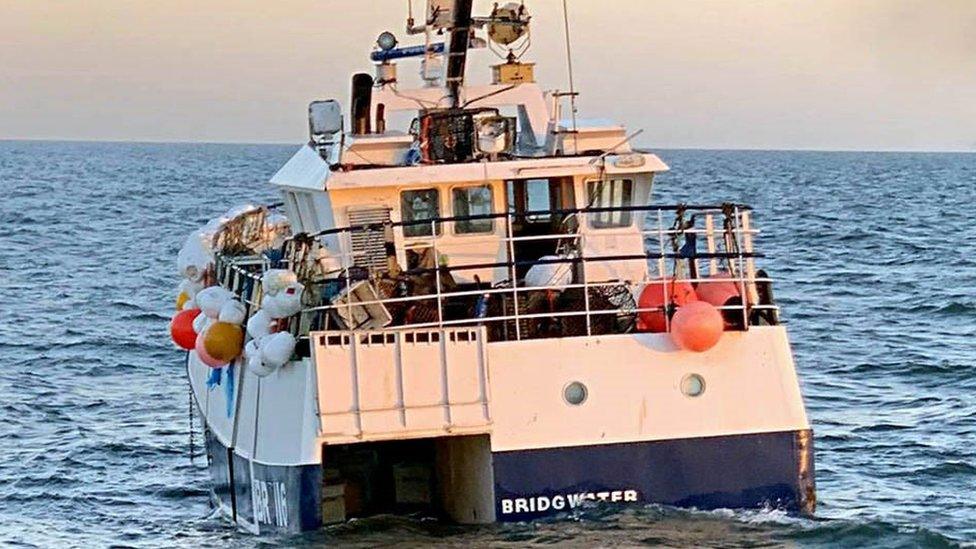
The Marine Accident Investigation Branch said Galwad-Y-Mor sat low in the water after the incident but remained buoyant
Fishermen were "fortunate not to be killed" when their boat was thrown about by the blast from a World War Two bomb, a report states.
The 15m (49ft) Galwad-Y-Mor was hauling in crab pots off the Norfolk coast when the line disturbed an unexploded bomb on the seabed on 15 December 2020.
Five crew members were injured, including one left blinded in one eye.
The Marine Accident Investigation Branch (MAIB) said their preparedness "saved lives".
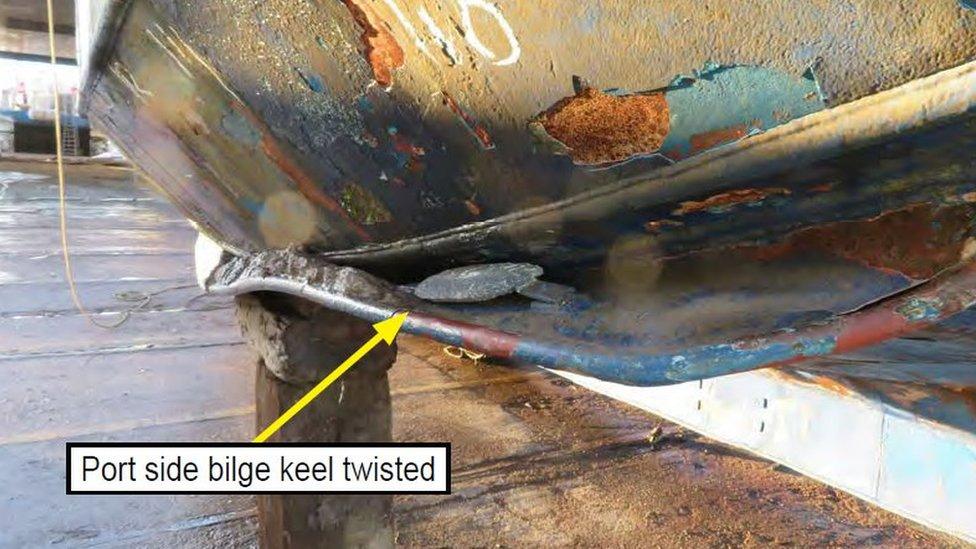
The accident report details the damage to the vessel
The crew, who had set out from Grimsby, North East Lincolnshire, were pulling in a string of 100 crab pots about 22 miles (35km) north-east of Cromer when they felt tension on the main line.
The skipper was increasing the engine speed in an attempt to free the rope, when there was an explosion and three loud bangs, the MAIB report says.
The explosion deformed the hull, flooded the engine room and caused severe "shock damage" to the interior.
'Life-changing injuries'
After being picked up by a rescue boat sent from a wind farm support ship four miles (6km) away, the seven men were given first aid and taken to hospital.
Five had suffered significant injuries, some of which were life-changing, the report states.
The skipper and night watchman both suffered broken bones, while another man needed a plate in his skull and lost the sight in one eye.
"Although the physical injuries were significant to five of the seven crew, they were fortunate not to be killed," the MAIB said.
"The crew member working on the starboard side of the main deck could have been ejected overboard."
It added: "It is likely that Galwad-Y-Mor crew's formal training, emergency drills, and combined length of onboard service prepared them to deal with this unforeseen emergency scenario and enabled them to take swift action that, undoubtedly, saved lives."
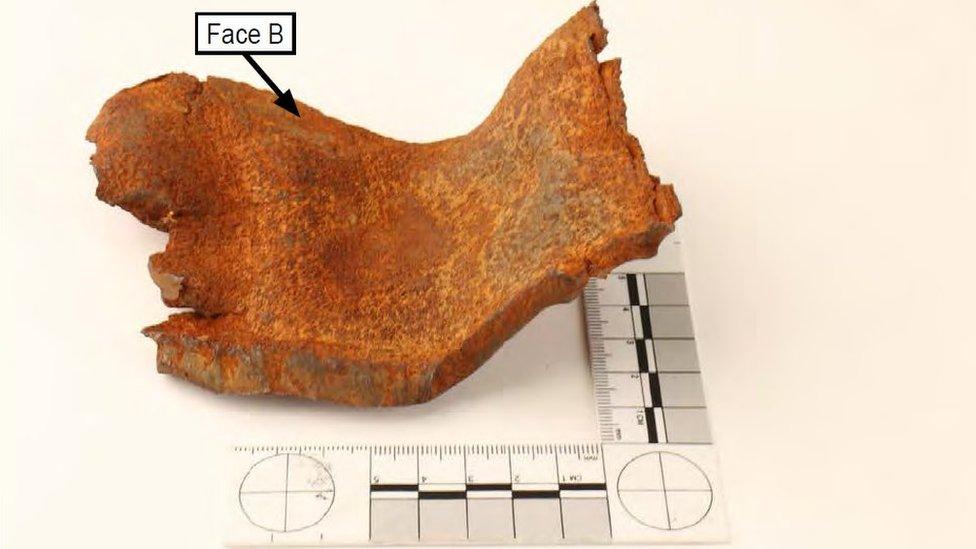
A fragment of metal found in a crab pot was "with a high degree of certainty" from a German air-dropped high explosive bomb
The MAIB said the boat's reserve buoyancy and good weather conditions meant it did not capsize.
A fragment of metal was recovered from a crab pot and tests found it contained trinitrotoluene (TNT) and its composition suggested "with a high degree of certainty" it was a German air-dropped high-explosive bomb.
"The aim of this report is to highlight the dangers that still exist with unexploded ordnance in the seas around the UK, and the actions to take should fisherman encounter any," the MAIB said.
The MAIB said that, based on the circumstances, no action was taken or recommendations made.

Find BBC News: East of England on Facebook, external, Instagram, external and Twitter, external. If you have a story suggestion email eastofenglandnews@bbc.co.uk, external
Related topics
- Published19 January 2022
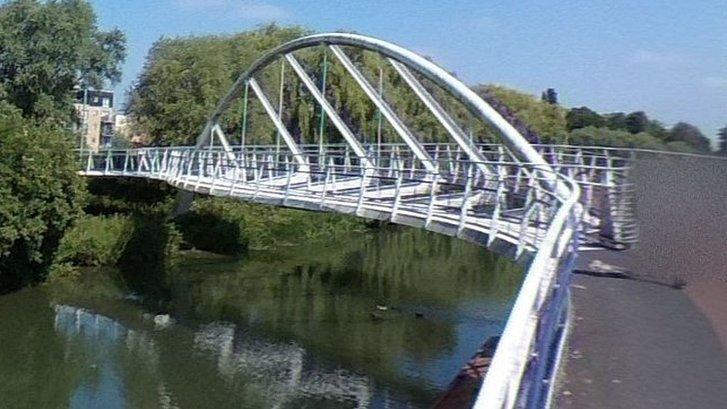
- Published16 August 2021
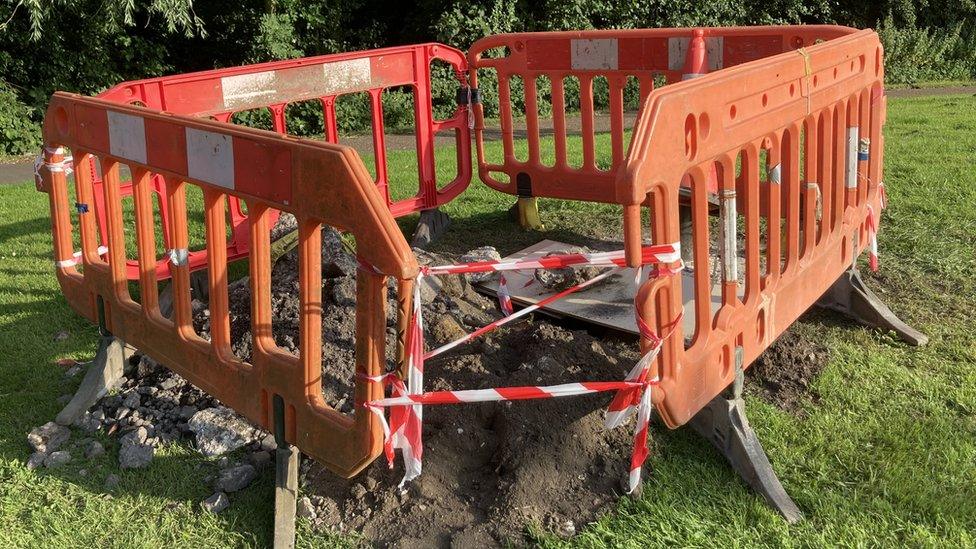
- Published4 March 2021
